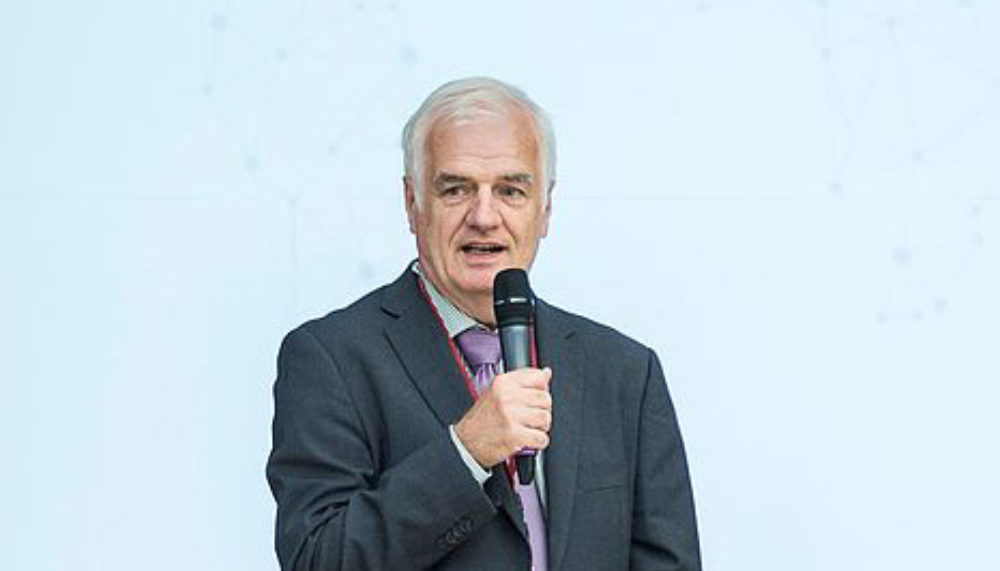BLOG POST | 1 Feb 2019
The European Union’s Peace Order – Common projects as future model

Less than seven years ago the EU was awarded the Nobel Peace Prize for “the advancement of peace and reconciliation, democracy and human rights in Europe"
By Hans-Joachim Giessmann
It is less than seven years ago since the European Union was awarded the Nobel Peace Prize for “the advancement of peace and reconciliation, democracy and human rights in Europe". As the Nobel Committee stated in its laudation, the EU represents the “fraternity of nations” that Alfred Nobel wished to promote with his endowment.
Yet against a backdrop of visible fissures, growing nationalist tendencies, political polarisation and even xenophobia in parts of societies and political elites, we must ask whether integration – the essence of the EU – has lost its appeal among member states. Could the EU fall apart, as many fear and some apparently hope? Is Brexit merely the first piece that will trigger a domino effect? Whatever the answer to this question may be, it is the debate about keeping the EU together which seems to prevail over the more timely and much-needed debate about strengthening its power to set the agenda in times of change.
Mastering the complex and systemic challenges of change dynamics would require a European Union that is resilient, internally and externally, and capable of making its voice heard, shaping the domestic agenda and exercising its role for a functioning peace order. Not seizing this opportunity would be thoughtless; not acting according to necessities, reckless. Increasing expenditure on defence while at the same time cutting spending on non-military peace operations sends a fatal signal. It will shift perceptions away from the EU being a peace power.
The European Union’s merit as a peace order lies in its member states’ success in shaping their relations to each other in such a way that going to war can be reliably ruled out and the armed forces do not play a role in the assertion of interests. Up to now, this achievement has rested on the internal recognition of shared values – for which the EU was honoured in 2012 – and the intentional integration of interests, structures and institutions. If the set of basic values is called into question, the intertwined interests, structures and institutions would be at stake as well.
Externally, the EU’s success is based on good neighbourly relations, a lasting transatlantic partnership and on strategic stability regarding Russia, safeguarded by a system of arms control and confidence-building measures. Although the endurance of these cornerstones seems uncertain, the EU has not shown itself to be capable of developing a strategic response to this challenge.
The EU has always been strong when it was able to agree on the development of common projects as future models for the European peace order: the creation of the Union, EU enlargement, managing the financial crisis. When nationalist interests predominate, as recently occurred in the realm of financial and migration policies, the EU becomes divided and weak in taking decisions. Its internal and external powers to shape the agenda are eroded.
It does not require courage to adopt joint projects as future models for the European peace order; what is required, however, is the political will to take on joint responsibility and initiative. Three proposals:
- Development of a European agenda for arms control: The termination of the Intermediate-Range Nuclear Forces (INF) Treaty makes a new arms race between Russia and the US more likely. The strategic instability resulting from that would affect Europe first and foremost.
- Shaping a resilient digital infrastructure: Technological advantages should not have a negative impact on security. An interagency mechanism of the European Council and the Commission under parliamentary control should be established.
- Expansion of the European Security Strategy into a Peace Strategy, in close partnership with the US and in constructive partnership with Russia. A wise German politician once explained the relevance of these different partnerships by describing the US as indispensable and Russia as immovable. What remains clear, however, is that Europe can influence these relations only if it follows its fundamental values and interests. The new Friendship Treaty between France and Germany could be a step toward this goal, if the two countries avoid the impression of claiming the commanding role.
Finally, Europe today is more than a community of states. It is also a community of societies, which have benefited most from more than 60 years of peace. Therefore, the role of civil society – to put pressure on the political leaders and to contribute actively to a European Peace Strategy – must inevitably grow.
Media contact
You can reach the press team at:
+49 (0) 177 7052758
email hidden; JavaScript is required


